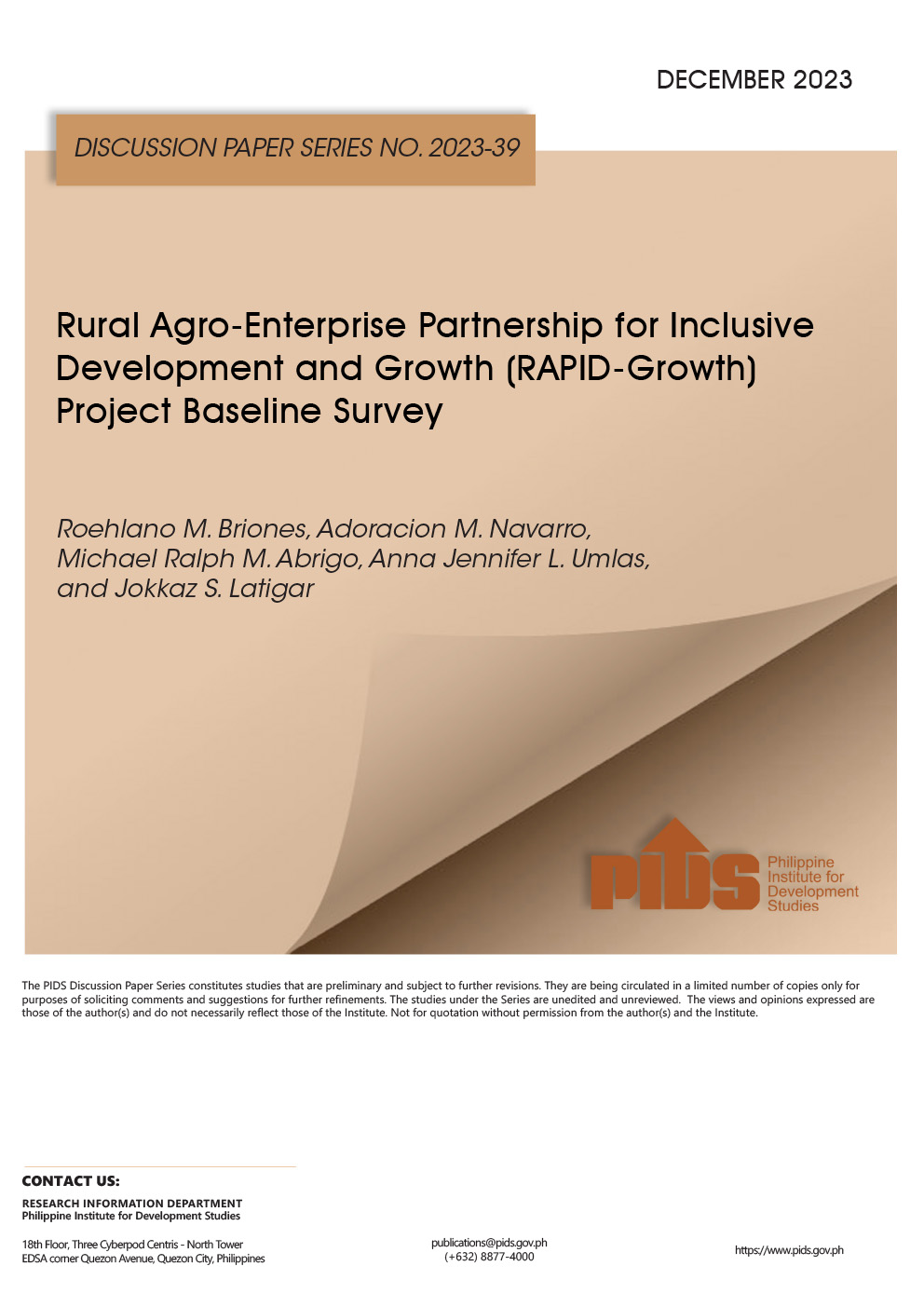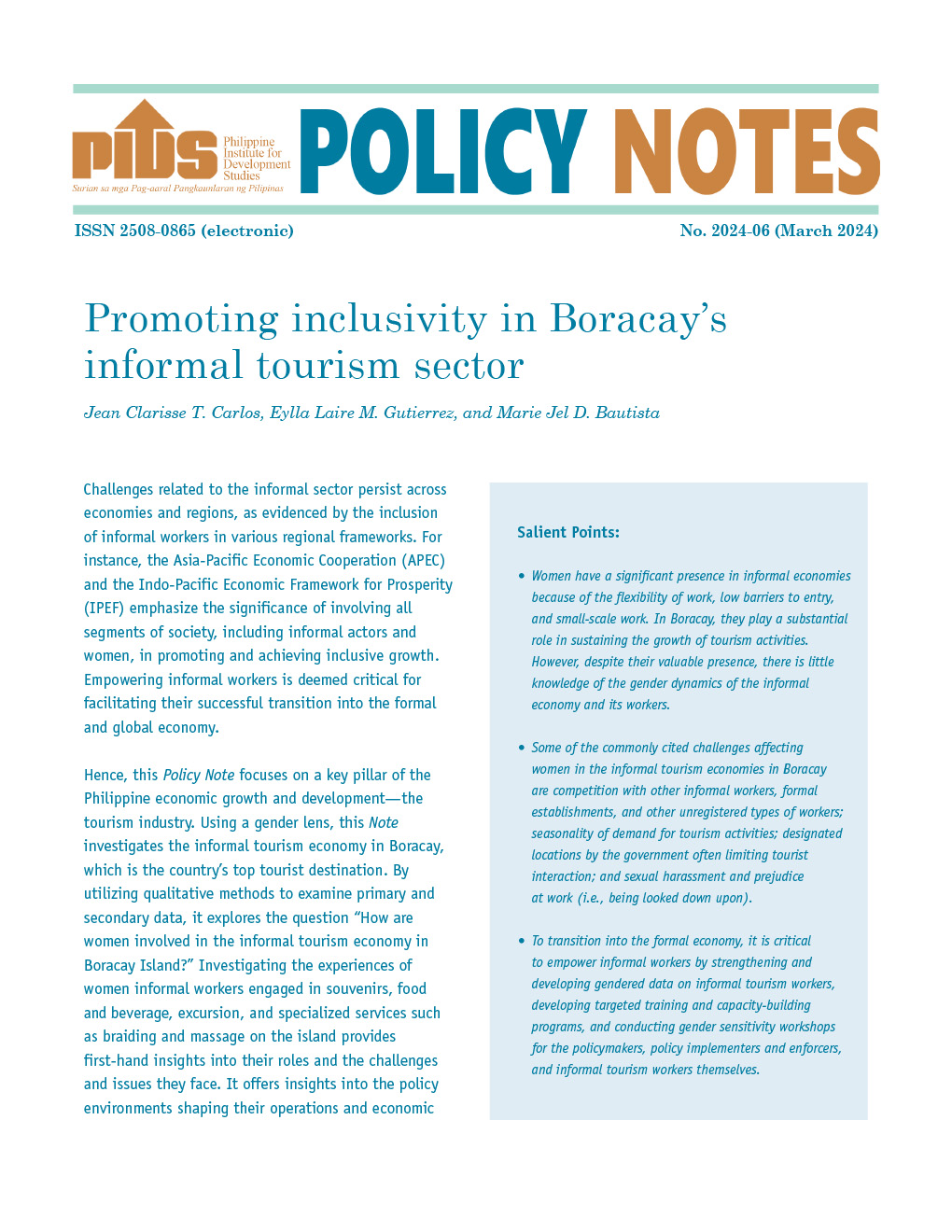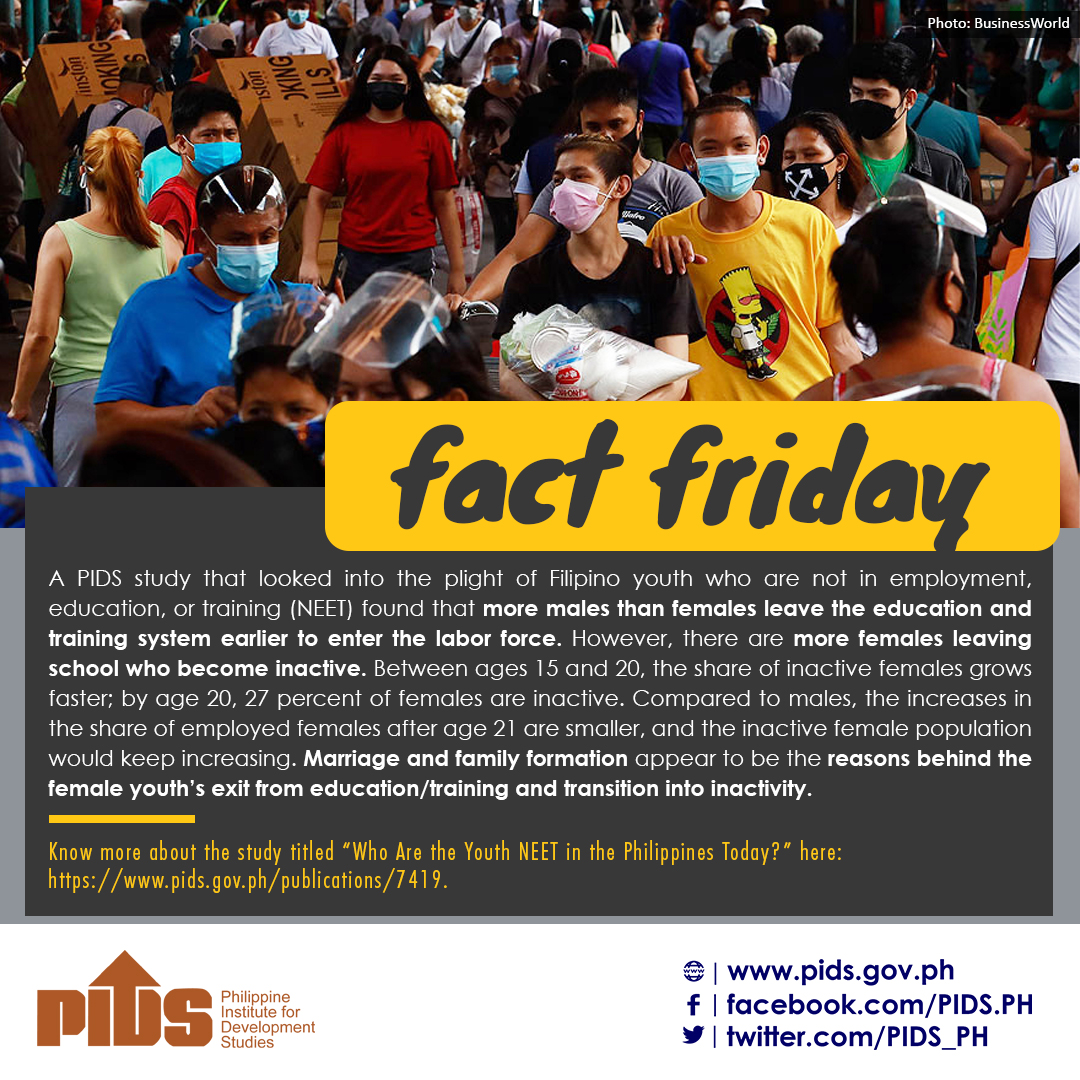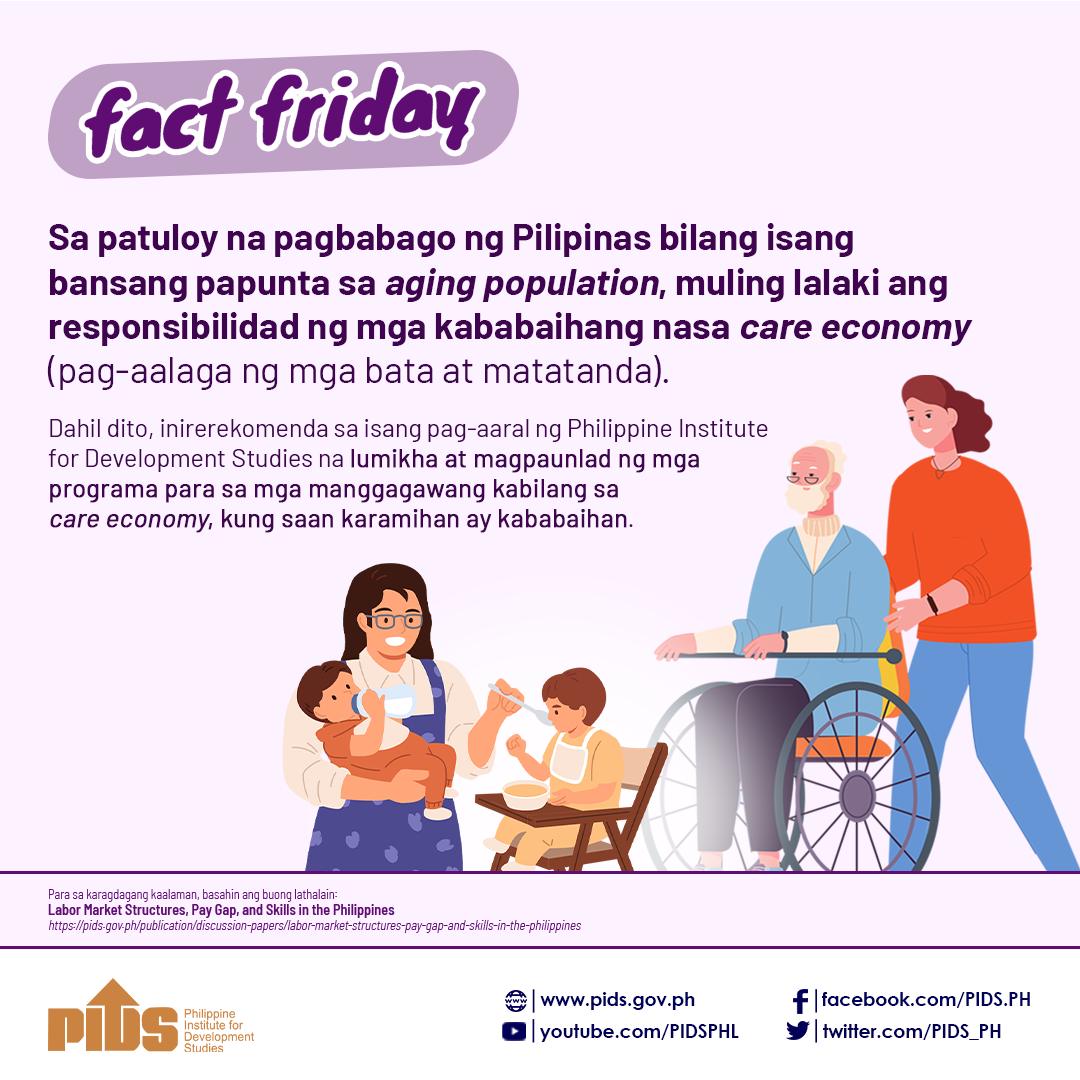Female farmworkers are paid at least P12 less than their male counterparts, indicating that gender inequality persists in agricultural wages in the country, according to the Philippine Institute for Development Studies (Pids).
Pids Senior Research Fellow Roehlano Briones said this is the reason he disagreed with data released by the Philippine Statistics Authority (PSA) which showed males and females in the agriculture sector are paid the same wages regardless of their gender.
Briones said in a statement that he disagreed with the assertion that agricultural tasks are “paid the same rate regardless of gender” and that the only probable reason for the differences in wages could be “because of differences in activities being done.”
“Indeed, if you look at the wages for agriculture, males still [receive] more than females. It’s around P12 in 2016. The gap has usually been there and it’s usually in the order of P10, P12 in real terms,” Briones said, citing the Agricultural Labor Survey of the PSA.
“The same activity can actually be paid different wages. In fact, wages are lower for women compared to men in agriculture,” he added.
In another survey of agricultural workers conducted by the Pids using the same agricultural tasks found in the PSA data, Briones noted that results showed that on average, men earn more in fertilizer and pesticide application, weeding, and planting, while women are being paid
The said survey also showed that wage disparities can be seen in agricultural tasks for different crops including palay, corn, coconut and sugar cane—which were also used in the survey conducted by the PSA.
Following these results, Briones urged the PSA to report segregated data by gender of agricultural workers for wages paid per activity.
The Pids senior research fellow also emphasized the need to increase women’s bargaining power by providing them with “preferential access to government services and transfers such as the conditional cash transfer.”
Establishing women’s groups that are active in labor market information and advocacy campaigns should not be concentrated in urban areas, according to Briones, considering the prevalence of labor market discrimination in rural areas.
Briones also stressed the importance of campaigning for the protection of women’s rights and gender equality starting at the grassroots.












